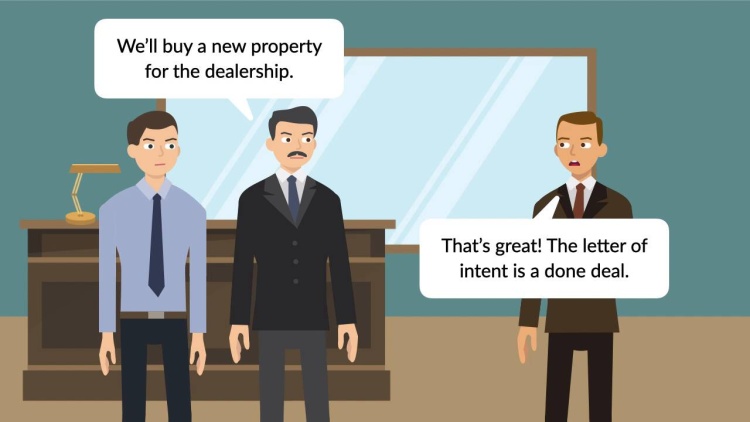Walser v. Toyota Motor Sales, U.S.A., Inc.
United States Court of Appeals for the Eighth Circuit
43 F.3d 396 (1994)
- Written by Sarah Larkin, JD
Facts
Wanting to establish dealerships in the Minneapolis/St. Paul, Minnesota, area, Toyota Motor Sales, U.S.A., Inc. (Toyota) (defendant) issued letters of intent to prospective franchisees in the area. Walser and McLaughlin (plaintiffs) received one of these letters and met with a Toyota representative, Haag, to discuss their interest in obtaining a dealership. There was a three-step process for obtaining a dealership. Walser and McLaughlin had to first fill out an application and propose a dealership plan. If Toyota deemed that acceptable, it would issue a letter of intent that contained final conditions. When the final conditions were satisfied, Toyota and the dealer would enter into a formal dealership agreement. Walser and McLaughlin completed the first step. Haag informed them that the letter of intent had been formally approved and that they would be the new dealer. Two days later, Haag informed them that a mistake had been made, the letter of intent had not been formally approved, and they would need to submit additional financial information. It appeared that Walser and McLaughlin would have difficulty in obtaining sufficient capital. Walser and McLaughlin purchased property for just over $670,000 for the proposed dealership. Haag informed Walser and McLaughlin that Toyota would not be issuing the letter of intent to them. Walser and McLaughlin filed suit. The matter went to trial on claims of breach of contract, promissory estoppel, and fraud. Walser and McLaughlin sought expected lost profits, in addition to other damages. During trial, Walser testified that the property had a value of at least $550,000. The trial judge instructed the jury to limit damages on the promissory-estoppel claim to Walser and McLaughlin’s out-of-pocket expenses. These out-of-pocket expenses were to be arrived at by calculating the difference between the purchase price for the property and its actual value. The jury returned a verdict in favor of Walser and McLaughlin for out-of-pocket expenses totaling approximately $230,000. Walser and McLaughlin appealed to the United States Court of Appeals for the Eighth Circuit.
Rule of Law
Issue
Holding and Reasoning (Hansen, J.)
What to do next…
Here's why 907,000 law students have relied on our case briefs:
- Written by law professors and practitioners, not other law students. 47,100 briefs, keyed to 996 casebooks. Top-notch customer support.
- The right amount of information, includes the facts, issues, rule of law, holding and reasoning, and any concurrences and dissents.
- Access in your classes, works on your mobile and tablet. Massive library of related video lessons and high quality multiple-choice questions.
- Easy to use, uniform format for every case brief. Written in plain English, not in legalese. Our briefs summarize and simplify; they don’t just repeat the court’s language.





